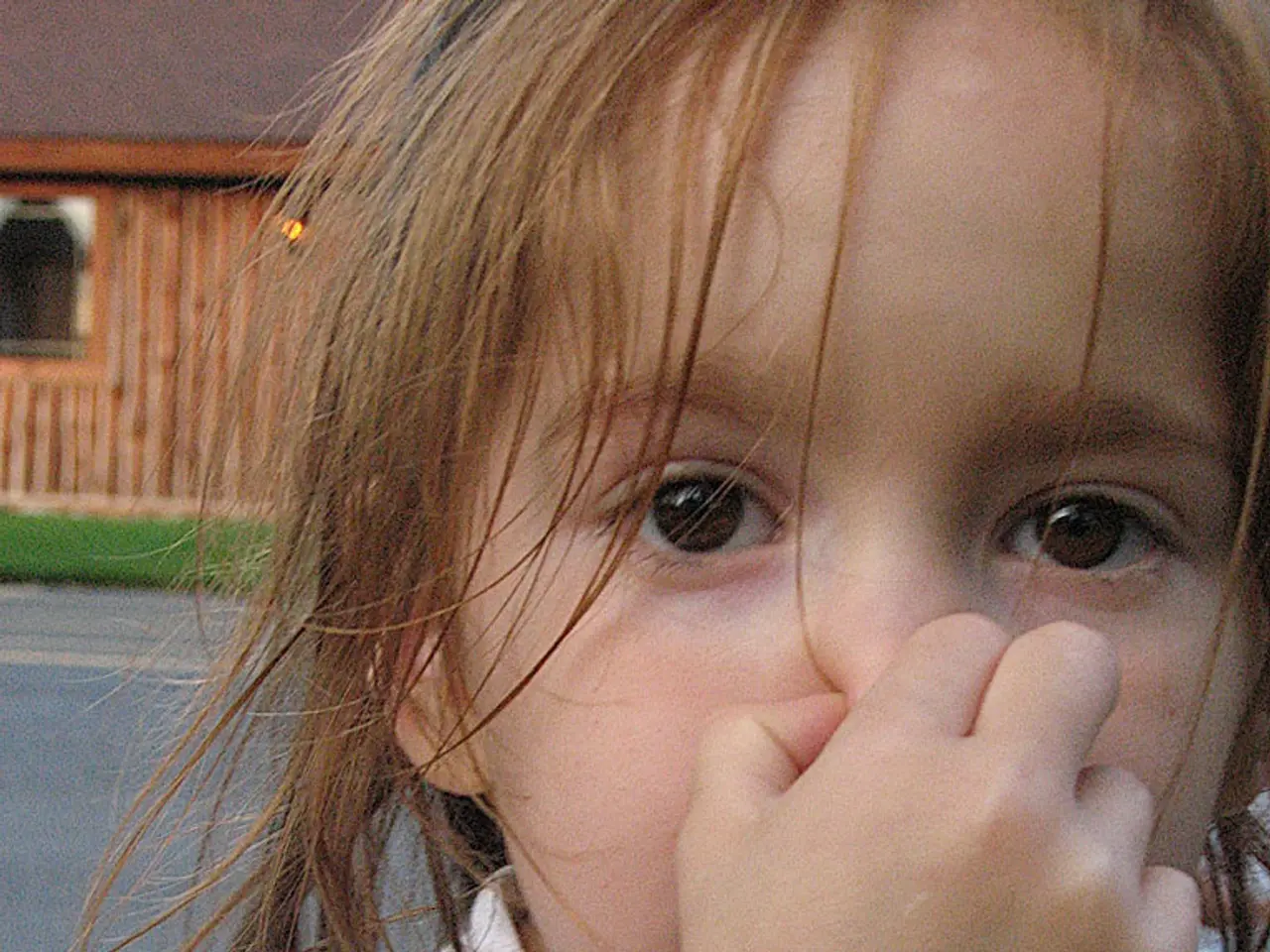Midday Migraines: Identifying 10 Potential Sources and Appropriate Responses
Afternoon headaches can be a common nuisance for many individuals, often disrupting productivity and quality of life. While the causes of these headaches can vary, understanding them can help in preventing and managing them effectively.
One of the most common causes of afternoon headaches is dehydration. Proper hydration is crucial for the brain to function optimally, and not drinking enough water throughout the day can lead to headaches. Another culprit is stress and muscle tension, which can cause tension-type headaches, characterised by tightness or band-like pain around the head, often linked to neck and scalp muscle tension.
Sleep problems, including insufficient or interrupted sleep, contribute to headache development later in the day. Environmental factors such as exposure to strong odors, loud noises, excessive sunlight, or weather changes can also trigger headaches. Hormonal fluctuations, particularly in women, can provoke headaches, especially when estrogen levels decrease.
Medication overuse and eye strain, resulting from prolonged screen time or uncorrected vision issues, can also produce scalp muscle tension and cause headaches by afternoon as muscles fatigue.
To prevent afternoon headaches, simple lifestyle strategies can be effective. These include increasing water intake during the day to prevent dehydration, managing stress through techniques such as mindfulness, relaxation exercises, or physical activity, ensuring consistent, quality sleep, and identifying and minimising exposure to personal headache triggers.
If headaches persist or worsen despite these measures, consulting a healthcare professional is recommended for further investigation and targeted treatment. For instance, people who have alcohol use disorder and quit drinking may experience headaches for days or weeks as their body goes through withdrawal, particularly if they typically drank in the afternoon.
Chronic headaches that are not caused by a clear trigger, do not respond to lifestyle changes, or get steadily worse over time should be discussed with a doctor. Migraines, a type of neurological headache that can be triggered by changes in nerve pathways, neurotransmitters, and other brain chemicals, can be more challenging to treat than other types of headaches.
In some cases, blood pressure-induced headaches may require lifestyle changes, blood pressure medication, or other treatment. Allergies can also cause headaches, particularly in the afternoon if exposure to allergens occurs during that time.
In conclusion, understanding the causes of afternoon headaches is essential for effective prevention and management. By implementing simple lifestyle strategies and seeking medical advice when necessary, individuals can significantly reduce the occurrence and impact of these headaches on their daily lives.
- It's important to note that hypertension, a condition marked by high blood pressure, can cause headaches, especially in the afternoon.
- For those dealing with mental-health issues, stress and anxiety can exacerbate headaches, making stress management techniques like mindfulness or relaxation exercises beneficial.
- Retargeting your health-and-wellness routine to include contextual approaches, such as being mindful of your screen time and correcting any vision issues, can help prevent headaches caused by eye strain.
- Science has revealed that Paxlovid, an antiviral medication, can be used to treat COVID-19-related headaches.
- Headaches can be triggered by certain foods or drinks, and individuals prone to headaches might need to avoid high-sodium or caffeine-rich items to minimize their occurrence.
- It's crucial to remember that chronic headaches, such as those associated with migraines, could require a healthcare professional's intervention, especially if they are resistant to lifestyle changes or worsen over time.




